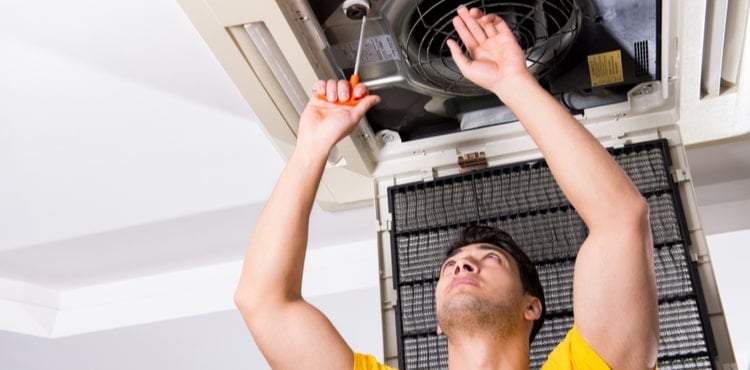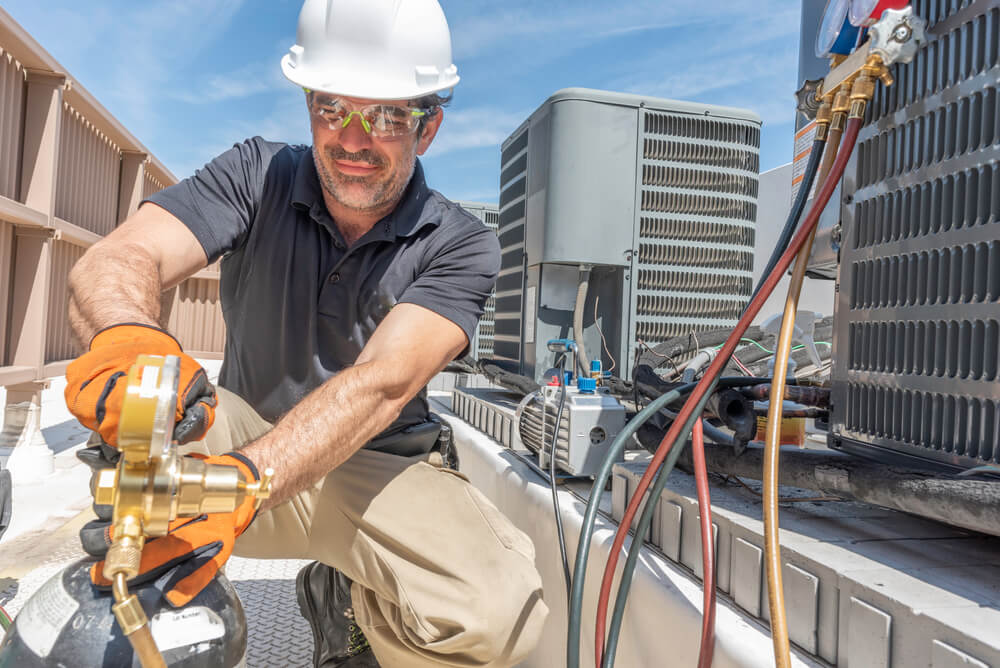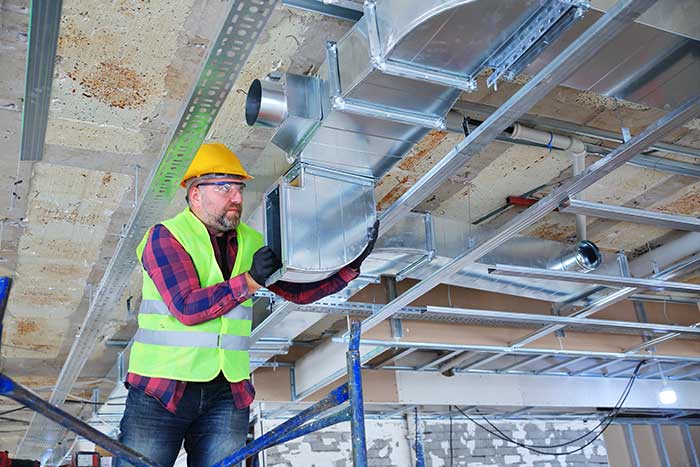AC Installation Canoga Park Commercial HVAC Services

HVAC techniques encompass a broad range of features beyond merely cooling. They incorporate heating systems, which might include furnaces or heat pumps to take care of heat during colder months. Ventilation is another critical facet, responsible for exchanging or changing air in an area to take care of air quality and remove moisture, odors, and pollution. This comprehensive strategy to indoor climate control contrasts sharply with air conditioning, which solely addresses temperature regulation.
Air conditioning systems are sometimes designed to chill a space by eradicating heat from the indoor air. These methods operate by circulating refrigerant through a collection of coils, absorbing heat from the air inside a building and releasing it outdoors. This course of not only lowers the temperature but can even reduce humidity ranges, creating a extra comfy surroundings. However, air conditioning fails to supply heating or ventilation, which are essential for year-round climate control.
The differences in complexity between HVAC and air conditioning methods are vital. An HVAC system is extra complex and includes a quantity of components working together. In addition to air conditioning models, HVAC methods commonly include components like ductwork, thermostats, and various controls. These components work in harmony to make sure that a building stays comfy across varying climate situations.
Ventilation Systems Canoga Park Friendly, Affordable HVAC Repairs
Maintenance necessities also differ between HVAC methods and standalone air conditioning techniques. Regular maintenance of HVAC methods contains checking all components, from the furnace and air conditioner to ventilation ducts. Ensuring that these components perform accurately is crucial for total system efficiency and longevity. In contrast, maintaining an air conditioning unit primarily entails cleaning or replacing filters, checking refrigerant ranges, and ensuring that the condenser is clean. While air conditioning items require care, the scope is narrower than that of complete HVAC systems.
Energy efficiency is one other key space where distinctions arise. Modern HVAC techniques are designed to maximize power efficiency and will embody features similar to programmable thermostats and variable pace followers. These features assist cut back vitality consumption, which can be notably useful in areas with excessive temperatures. Air conditioning units also have power efficiency scores, however they lack the holistic options that an HVAC system provides, ultimately impacting general energy use in a building.

In phrases of system sorts, HVAC can incorporate several designs. These might include central systems, split systems, and packaged systems, each useful in several purposes depending on the dimensions and format of the constructing. In distinction, air conditioning techniques are primarily outlined by sorts corresponding to window models, portable units, cut up methods, and central air conditioning, which mainly serve the cooling function.
Furnace Repair Canoga Park HVAC Contractor, Heating & Air Conditioning
The initial installation costs can even range significantly between HVAC and air conditioning techniques. A full HVAC system generally requires a higher upfront funding as a outcome of its complexity and range of options. However, the long-term financial savings on power bills and maintenance can justify this funding. Air conditioning models, while generally cheaper, might not provide the same degree of efficiency and comfort advantages over time.
Climate influence considerations play a job within the dialogue between HVAC and air conditioning systems. HVAC methods can enhance air circulation and air flow, which is significant for maintaining wholesome indoor air quality. Proper ventilation removes indoor pollution and moisture, decreasing the chance of well being points associated to poor air quality. Air conditioning systems alone don't address these points and primarily give attention to cooling, which might lead to stagnant indoor air if not paired with adequate air flow solutions.
Energy Efficiency HVAC Canoga Park Friendly, Affordable HVAC Repairs
Installation professionals usually require specialised training in HVAC as a outcome of its complexity. This training encompasses various elements of heating, cooling, air flow, and the interrelationship between these capabilities. Successful installation of an HVAC system calls for a deeper understanding of how these components work together to create a comfortable indoor setting. In distinction, air conditioning specialists may focus solely on cooling techniques, limiting their scope of experience.
In abstract, recognizing the differences between HVAC and air conditioning can information decision-making in relation to selecting systems for house or commercial areas. HVAC techniques supply complete control over the indoor surroundings by delivering heating, cooling, and air flow solutions. HVAC Services Canoga Park. Air conditioning, while crucial for cooling, represents just one facet of indoor climate control. Investing in an HVAC system can result in more effective temperature regulation, improved air quality, and energy financial savings over time.
Zone Control HVAC Canoga Park Family-Owned & Operated HVAC Contractor
Ultimately, understanding these distinctions can lead to informed decisions about climate control techniques. Whether you lean in course of a full HVAC setup for year-round consolation or a simpler air conditioning answer for instant relief from the heat, being informed empowers efficient decision-making that meets both comfort and budgetary needs.
- HVAC (Heating, Ventilation, and Air Conditioning) encompasses a broader spectrum of climate control, while air conditioning focuses solely on cooling indoor spaces.
- HVAC methods embrace heating components like furnaces or heat pumps, guaranteeing consolation throughout colder months along with cooling.
- Ventilation is a key side of HVAC, facilitating fresh air circulation and improving indoor air quality, which air conditioning does not tackle immediately.
- Energy efficiency requirements might differ; HVAC methods often aim for a balanced approach to energy use across heating and cooling, while air conditioners primarily concentrate on cooling efficiency.
- HVAC methods can embrace dehumidifiers and air filtration applied sciences, enhancing indoor consolation by controlling moisture and allergens, options sometimes absent in normal air conditioning models.
- The installation and maintenance requirements for HVAC systems are generally more complex, necessitating specialised data and repair in comparability with conventional air conditioning items.
- HVAC options might use zoned methods for targeted temperature control in different areas, whereas air conditioning units normally cool whole areas uniformly.
- Cost implications vary, as HVAC systems incorporate a quantity of functionalities and may be dearer initially, whereas primary air conditioning units can be extra budget-friendly.
- The operational framework differs: HVAC techniques typically work via a network of ducts for airflow, while many air conditioning models operate through standalone setups or window placements.
- Regulations and licensing for HVAC professionals usually require extra in depth training due to the system's intricacies, whereas air conditioning technicians could have much less stringent requirements.
What is the first distinction between HVAC and air conditioning?
Emergency HVAC Services Canoga Park Your HVAC Contractor
HVAC stands for Heating, Ventilation, and Air Conditioning, whereas air conditioning refers specifically to cooling a space. HVAC systems provide Full Report complete climate control, together with heating and ventilation.
Why is HVAC considered more complex than air conditioning?
HVAC techniques integrate multiple functions—heating, cooling, and ventilation—requiring a community of interconnected components, making it extra complicated than standard air conditioning units that solely handle cooling.
HVAC Repair Near Me Canoga Park Find a Local Plumber or Licensed HVAC Contractor
Can a home have air conditioning without an HVAC system?

How do HVAC techniques improve indoor air quality?
Emergency HVAC Services Canoga Park HVAC Contractor Locator - Insulation
HVAC techniques embody filtration and ventilation Get the facts features that help take away pollution, control humidity, and flow into recent air, thereby enhancing indoor air quality extra successfully than air conditioning models alone.
Are HVAC methods more energy-efficient than air conditioning units?
Generally, HVAC techniques may be extra energy-efficient as they are designed to manage all features of climate control. However, efficiency is decided by the particular models and technologies used.
Can I replace my air conditioning unit with an HVAC system easily?
Residential HVAC Canoga Park Heating & Air Conditioning: HVAC Contractor
Replacing an air conditioning unit with an HVAC system requires cautious planning and should involve additional installation costs, as you have to combine heating and ventilation components into your current space.
HVAC systems usually require extra intensive maintenance, together with checking various components like thermostats and ductwork. In distinction, air conditioning units typically need simpler maintenance, like filter modifications.
Smart HVAC Systems Canoga Park Heating & Cooling - HVAC Services
How do I resolve if I need HVAC or just air conditioning?
(HVAC Upgrades Canoga Park)

Are there any value variations between HVAC and air conditioning systems?
HVAC Financing Options Canoga Park Heating & AC Services - HVAC Contractor
Yes, HVAC systems typically include higher upfront installation costs and ongoing maintenance fees, while air conditioning items tend to be more inexpensive however might incur greater operating prices if used extensively. Home Comfort Solutions Canoga Park.